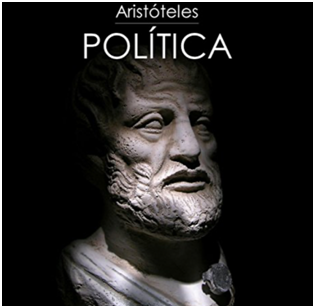
- The Graeco-Roman heritage
Since Germany only came into existence as a nation since 1870, we have to look at the Western European tribes if we want to go further back in history. Those tribes were themselves strongly influenced by the culture and ideology of the Greeks and Romans. From the ancient Greek Empire, we find a quote by the philosopher Aristotle, who defined the concept of rule and the order of the state community in his book ‘Politica’. In this context Aristotle makes the following statement:
‘From this it follows that even warfare is by nature a form of acquisition – for the art of hunting is part of it – which is applied against wild animals and against those men who are not prepared to be ruled, even though they are born to subjection, in so far as this war is just by nature’.
( Aristotle 384-322 BC in Isaac 2006: 40).
Aristotle distinguishes here between people who are born to be subjugated and those who are born to subjugate. This statement shows that a sense of general social interconnectedness had already been lost several hundred years before the birth of Christ. It also becomes clear that a perspective, that assumes inequality as inherent, can be used to legitimise violence.
The historian Benjamin Isaac describes how this concept of inequality in Greek society was a fundamental element in the idea and political practice of imperialism, which was later adopted and adapted by the Romans (Isaac, 2006). In this context, Isaac mentions texts by Aristotle, Vitruvius and Vegetius.
The conviction that the concept of inequality formulated by Aristotle, which made imperialism possible, also formed the basis for the genocide of National Socialism, is confirmed by the literary scholar Vincent P. Pecora. Pecora (1992) links the notion and practice of imperialism that developed in Western Europe with anti-Semitism because both are based on a perspective in which the interconnectivity of humanity is not recognised, leading towards the facilitation of violence against those that are perceived as ‘others’. In his opinion, there is an urgent need to recognise ‘the West’s massive centuries-old, and increasingly effective persecution of its ‘others’ ’ (Pecora 1992: 161).
For the literary scholar Peter Haidu (1992), a perspective in which the ‘other’ is perceived as alien, leads towards ‘desubjectivisation’ and is a precondition to violence. Haidu refers to Himmler’s speech that prepared the SS for the ‘Final Solution’ and points out that this perspective was the basic legitimising principle. Himmler’s main efforts were to prevent a possible identification with the other and to promote their desubjectivisation (Haidu 1992: 291).
In the next blog we will look at how the ideologies and practices of Roman imperialism spread within Western European tribes after the fall of the Roman Empire.
Bibliography
Aristoteles. (n.d.). Book 1. In Politics (p. 1256B).
Haidu, P. (1992). The dialectics of Unspeakability: Language, Silence, and the Narratives of Desubjectification. In S. Friedlander (Ed.), Probing the limits of cultural representation (p. 277). Cambridge: Havard UP.
Isaac, B. (2006). ‘Proto-Racism in Greaco-Roman Antiquity’. World Archaeology, 1(38), 32-47.
Pecora, V. P. (1992). ‘Habermas, Enlightenment and Antisemitism’. In Probing the limits of cultural representation (p. 161). Cambridge: Harvard UP.
Images
https://www.kobo.com/ie/en/ebook/politica-24